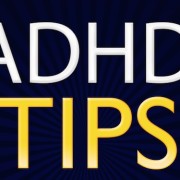The Importance of Speech Therapy for Adults – Helping You Beyond Speech
Pathways Neuropsychology Associates are beginning a blog that will highlight the various services offered, and who and how they can benefit. We will be featuring not only the specific clinical staff, but also the latest treatments and interventions, and the new evidence-based research. You can always contact us with any questions, and visit the website. For now, welcome to the “Cognition Corner.”
When many of you think of Speech Therapy, you may picture a very nice person sitting at a child’s table in a school helping either yourself or a friend to say your R’s correctly. That is the view for many of us. But this is going to serve as a public service announcement about the importance of speech therapy for adults, and as a vital team member to help in the recovery after something neurological happens such as a brain injury or stroke.
If you or a loved one are faced with a medical problem/condition that leads you to have problems with concentration, memory, math skills, and you are unable to complete your daily responsibilities, or even return to work; there are several people you would think to make appointments with.
You would make appointments with: your doctor, a neurologist, a neuropsychologist, possibly a lawyer or social worker, maybe even your pastor or clergy. You may not think about one of your stops along your road to recovery being at a speech pathologist’s office. But that is exactly one of the stops you should make!
From a mild concussion suffered during a soccer game, to a severe hemmorhagic stroke that has left your right side paralyzed, speech therapy is there for you just like any other rehabilitation service.
As per the American Speech-Language and Hearing Association (ASHA), it is within a Speech Pathologist’s scope of practice to, “play a primary role in the screening, assessment, diagnosis, and treatment of infants, children, adolescents, and adults with cognitive-communication disorders.” A Speech Pathologist has the knowledge and training to help someone identify what their deficits may be and what daily activities they may be impacting, as well as develop an individualized treatment plan that will target the cognitive-linguistic and executive functioning skills they will need for increasing quality of life, and returning to everyday activities such as work and school.
If you have difficulty following complex directions- speech therapy can help.
If you aren’t able to organize yourself and manage your time well, speech therapy can help.
If you are an accountant, and are having trouble with computation skills, speech therapy can help.
If you are a CEO, and you find yourself with no filter when talking and you are in danger of losing your job, speech therapy can help.
Those are just a few scenarios. No matter what your diagnosis or background, if you are finding problems with your: memory, attention, problem solving, self-monitoring, household chore management, there will be something in speech therapy for you.
The field of speech pathology has really grown over recent years, and the use of technology, tablets, and virtual reality has enabled SLPs to simulate functional tasks pertinent to your everyday activities. We can help you map out a bus route to work using google maps, or we can help you get cognitively enriching apps on your tablet through ITunes. And there are other devices out there dedicated to helping improve attention and cognition. Available technologies will be the subject of another blog post.
If you think you or your loved one would benefit from the strategies and activities that going to speech therapy can offer you, then talk to your doctor and get a perscription today! And call our number to schedule an appointment for an evaluation. Hope to see you soon, to be able to be on your road to recovery with you.
Kristen Schreirer, MA, CCC-SLP, CBIST
American Speech-Language-Hearing Association. (2005). Roles of speech-language pathologists in the identification, diagnosis, and treatment of individuals with cognitive-communication disorders: position statement [Position Statement]. Available from www.asha.org/policy.
The post The Importance of Speech Therapy for Adults – Helping You Beyond Speech appeared first on Pathways Neuropsychology Associates.
Source: Pathways Neuropsychology
The Importance of Speech Therapy for Adults – Helping You Beyond Speech




 ADHD – Back to School Tips
ADHD – Back to School Tips 






 Excerpt from New York Times. read the full story
Excerpt from New York Times. read the full story 